3 ways down the line in Excel, line break, down row in 1 Excel cell
In the process of using Excel, with long or simple content we want to center the content to display a more balanced display, we need to go down the line. However, getting down in Excel is not the same as Word when you just press Enter.
If you press Enter on Excel, by default we will be moved to another cell to enter the content, not the content in the same line. So how can I get down in an Excel box, the problem seems simple but not everyone knows how to do it? The following article of Network Administrator will guide you to read 3 ways to get down in Excel.
The following article applies to Excel 2007. With other versions, you do the same way.
- How to activate Microsoft Office 2016 Professional Plus for free
- Instructions on how to set a password to protect the Excel file safely
- These are the most basic functions in Excel that you need to understand
There will be 3 ways downstream in Excel , suitable for each case of content entry. Please follow the downstream instructions in Excel below for details.
Method 1: Get off the Excel line with Alt + Enter
To get down to the row in Excel, we will use Alt + Enter . For example, when entering content such as images with long content will be overflowed to the right. To break the line below, put a mouse pointer in the position you want to get down , then press Alt + Enter to get down the line.

The result will be as shown below. The content has been put in one line. We then proceed to edit, re-align the content accordingly.

Method 2: Use Wrap Text to Excel line
We also enter the content into an Excel line, then click on the text that has been entered, then click on the Wrap Text feature above.
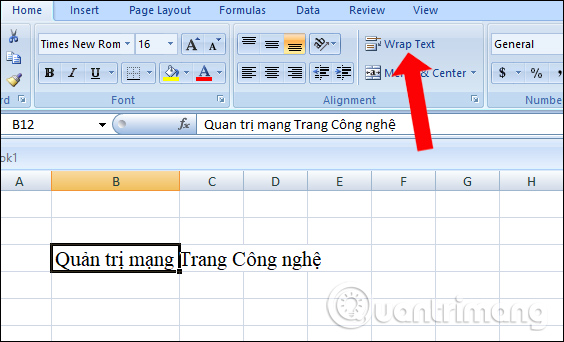
Content results will also drop as shown. You re-align the content for a more beautiful layout.
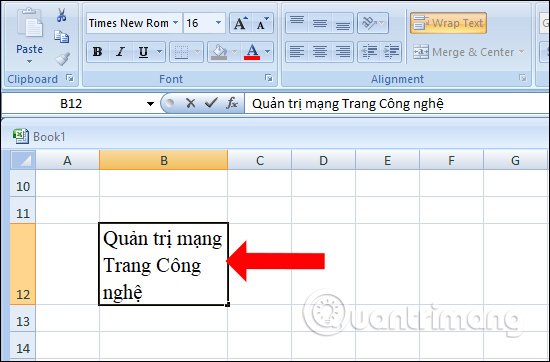
Method 3: Adjust in Format Cells to Excel line
Step 1:
You click on the text content entered in Excel and right-click and choose Format Cells . that appears in the list.
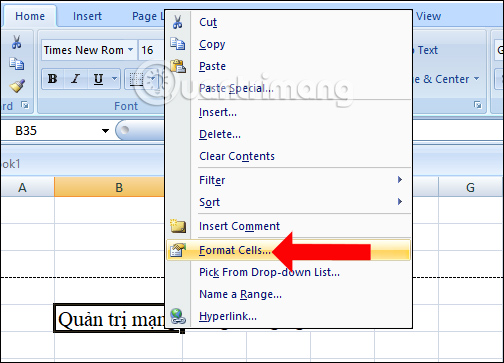
Step 2:
A new dialog box appears. Here, press the Alignment tab and then click on Wrap text as shown below.
In addition, here you can customize more with example properties between content, corner, change Fonts, create frames for cells . Click OK to save.
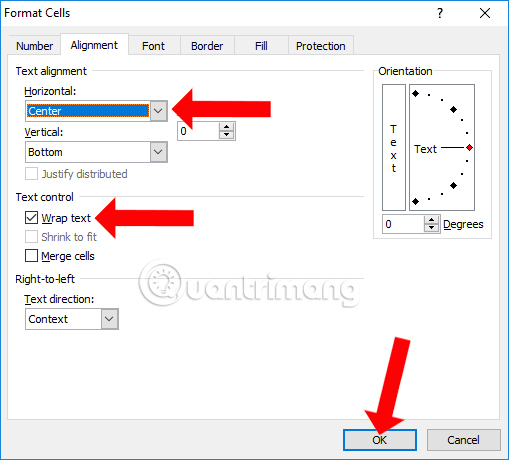
Step 3:
The text will also be transferred to the line without going to another column. At the same time the content in the stream will also be automatically aligned, but we do not need to manually edit.
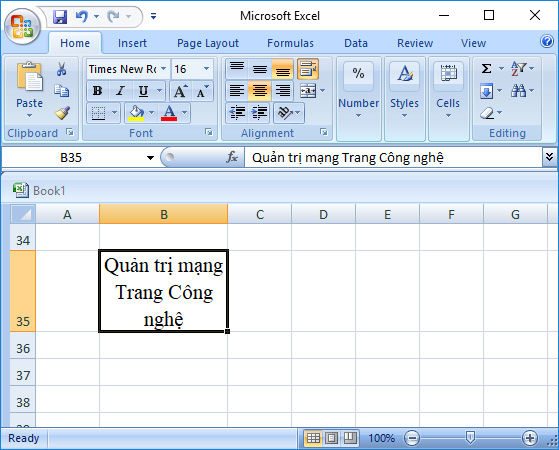
Here are 3 ways to get down to Excel in a very simple way. If you want the content in Excel cells to be automatically aligned, adjust in Format Cells, the content will be adjusted to match the width of the column containing it.
Video tutorial down the line, break the line in Excel
Hopefully with this detailed guide you can present your spreadsheet better.
See more:
- How to number columns automatically in Excel
- How to use SUMPRODUCT function in Excel
- How to rotate paper size in Excel
I wish you all success!
You should read it
- ★ Instructions automatic text carriage return in Excel - Auto line breaks when the width of the column in Excel
- ★ Instructions for adding alternate blank lines on Microsoft Excel
- ★ How to disable Hyperlink in Excel
- ★ MS Excel - Lesson 4: Working with lines, columns, sheets
- ★ 4 basic steps to color alternating lines in Microsoft Excel